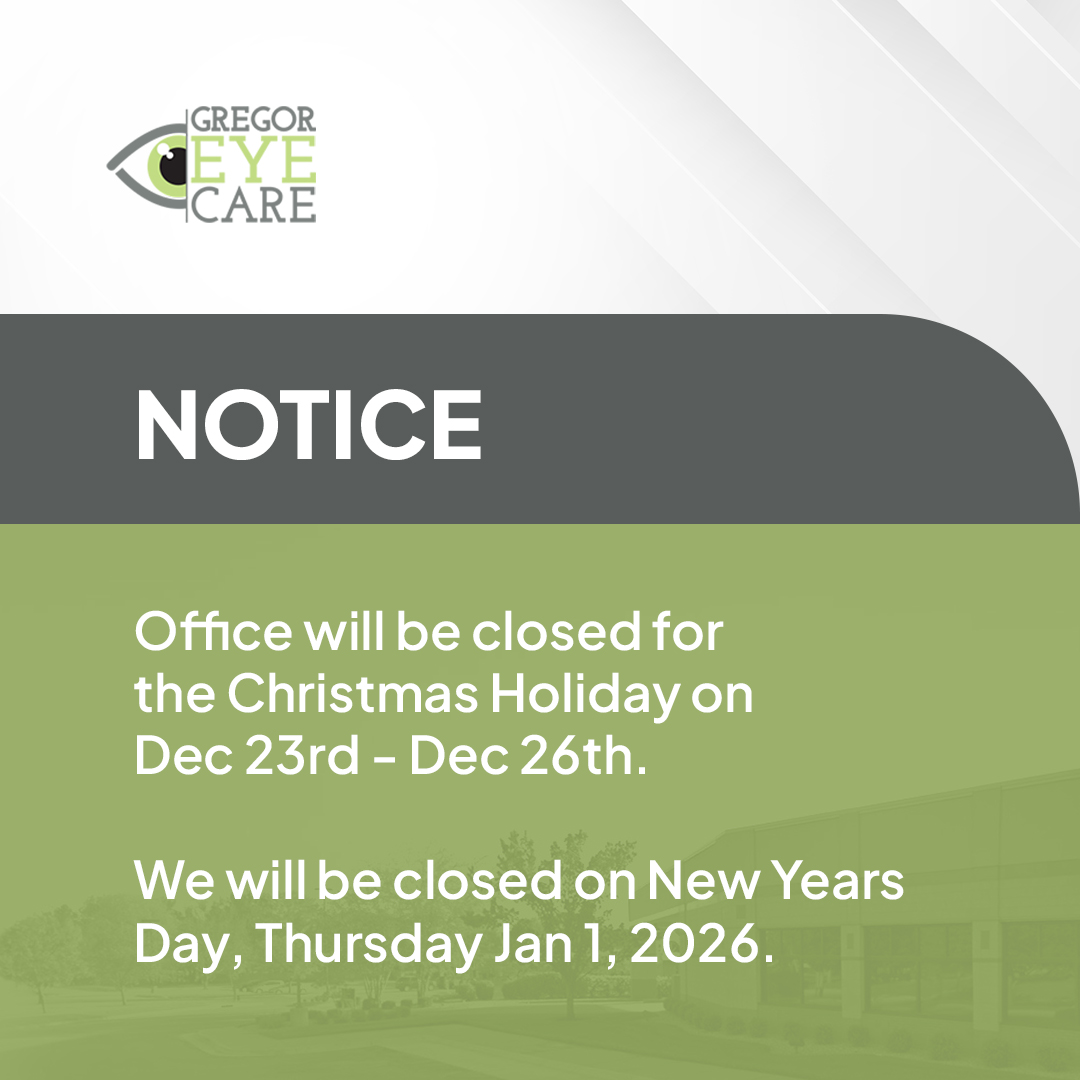Gregor Eye Care Blog
Learn more about optometry care in our blog!

Myopia is becoming increasingly common, especially among children and young adults. While genetics play a role in its development, environmental factors and lifestyle choices can also influence its progression. Fortunately, there are steps you can take to slow myopia progression and protect your vision.

Finding the right contact lenses for astigmatism can be challenging. Soft lenses may feel comfortable but often fail to provide stable vision, while rigid gas permeable (RGP) lenses offer clarity but can be uncomfortable for some wearers. Hybrid contact lenses offer the best of both worlds—combining the sharp vision of RGP lenses with the comfort of soft lenses. If you’ve struggled to find a reliable vision solution for astigmatism, hybrid lenses may be the answer.

As the year draws to a close, now is the perfect time to take full advantage of your vision insurance and flexible spending account (FSA) benefits. At Gregor Eye Care, we want to help you make the most of your coverage so you can enjoy clear, healthy vision while maximizing your financial investment. Here are some tips to ensure you’re getting the most out of your benefits before they reset.

Glaucoma is a complex group of eye conditions that affect the optic nerve and can lead to vision loss if not detected and managed early. Often called the "silent thief of sight," glaucoma can progress without noticeable symptoms, making regular eye exams crucial for early detection. Two primary types of glaucoma—open-angle and angle-closure—differ in their causes, progression, and treatment methods.

Dry eye disease is a common condition affecting millions of people worldwide. It occurs when your eyes fail to produce enough tears or when the quality of your tears is insufficient to keep your eyes properly lubricated. For many, traditional treatments such as artificial tears or prescription eye drops provide relief. However, for those with more severe or chronic cases of dry eye, these solutions may not be enough. Autologous serum eye drops are an innovative and effective treatment designed to bring relief to even the most challenging dry eye cases.

Contact lenses have become an increasingly popular choice for vision correction, offering a convenient and discreet alternative to traditional eyeglasses. Whether you're nearsighted, farsighted, or have astigmatism, contact lenses can provide you with a customized solution to meet your unique visual needs.

Cataracts are a common eye condition that affects many people as they age. They occur when the lens of the eye becomes cloudy, leading to blurred vision and difficulty seeing clearly. Cataracts can develop slowly over time, and they are often a result of aging. However, other factors such as genetics, smoking, and certain medical conditions can also contribute to their development.

In our digitally-driven world, the prevalence of myopia has become a growing concern. With the increasing use of digital devices such as smartphones, tablets, and computers, the strain on our eyes has intensified. As you navigate this digital landscape, it's crucial to understand the impact of myopia and the importance of effective management strategies.

A concussion is a form of traumatic brain injury that occurs when a sudden blow, jolt, or impact causes the brain to move rapidly within the skull. This abrupt movement can disrupt the brain's normal functioning, leading to a range of physical, cognitive, and emotional symptoms. Concussions are often misunderstood and can have serious consequences if left untreated.

Myopia is a refractive error that affects a significant portion of the global population. This condition occurs when the eyeball is elongated, causing light rays to focus in front of the retina instead of directly on it. As a result, distant objects appear blurred, while near objects remain clear. By intervening early and employing effective management strategies, you can significantly reduce the risk of myopia progression and its associated complications.









